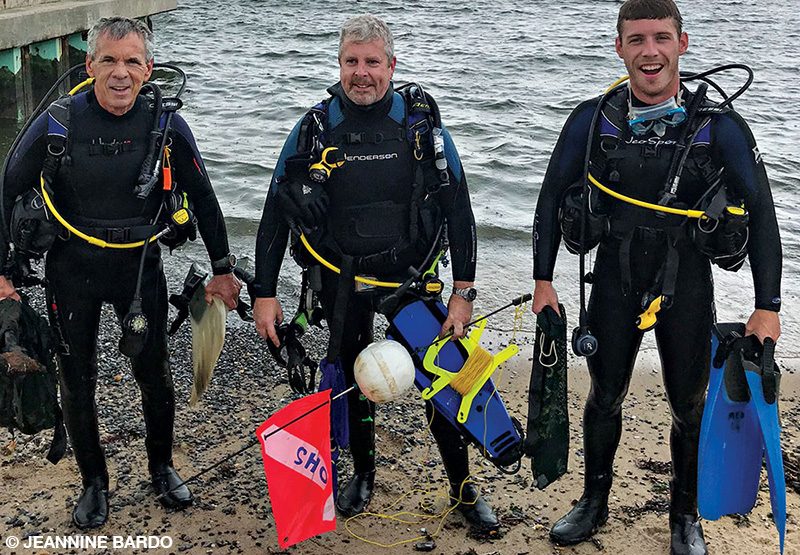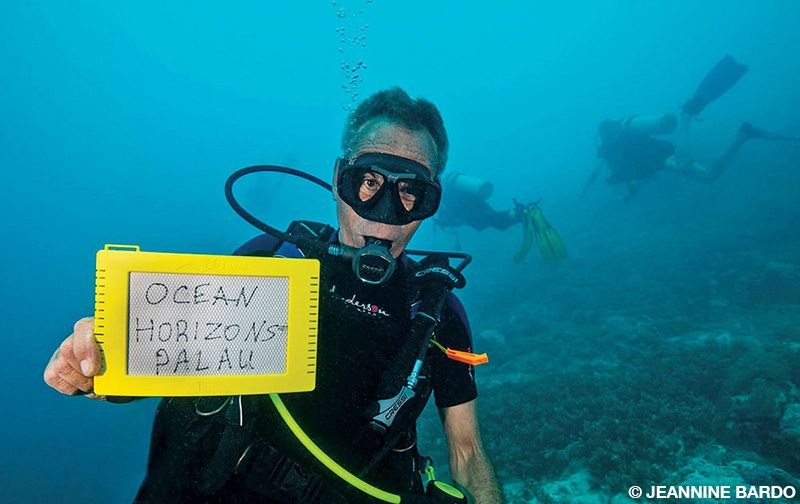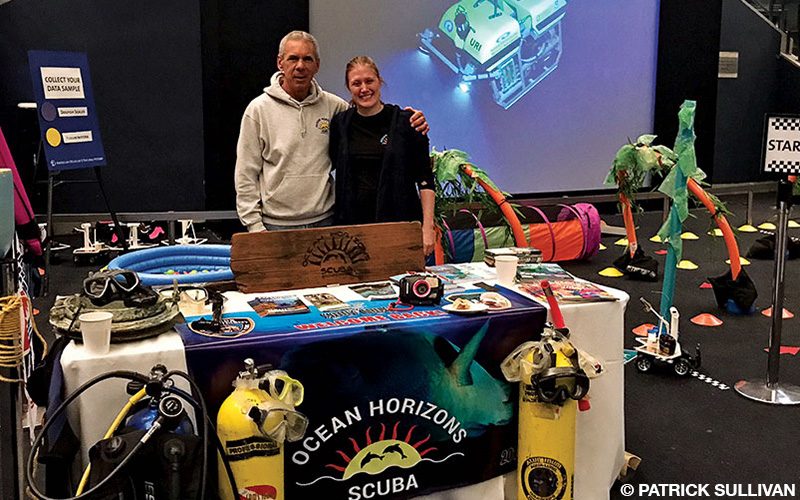Hometown: Brooklyn, N.Y.
Years Diving: 42
Favorite Dive Destinations: Cozumel and Palau
Why I’m a DAN® Member: I’ve been a DAN member since 1992, and I think the service is fantastic. It gives me peace of mind.
It was a beautiful late-summer morning. As New York City Fire Department (FDNY) firefighter Paul Bardo left his home in Brooklyn on Sept. 11, 2001, he recalls thinking it was perfect conditions for his morning run — a cloudless, robin’s-egg blue sky with air temperatures in the low 60s and the sun’s rays glinting off the waters of Upper New York Bay.
Bardo, who lived not far from his firehouse, Brooklyn Engine Company 240, had the day off. His running route included spectacular views of the sweeping spans of the Verrazzano-Narrows Bridge and the skyscrapers of Lower Manhattan.
“I was jogging in my neighborhood along the water near the Verrazzano bridge with my back to the towers,” Bardo recalls. “As I turned around to go back, I saw the second plane hit. I immediately went home, got my stuff together and went to my firehouse.”
Bardo had witnessed United Airlines Flight 175 crashing into the south tower of the World Trade Center (WTC). It was just after 9 a.m., and American Airlines Flight 11 had slammed into the top of the north tower 17 minutes earlier.
Bardo’s life — and indeed, the world — would never again be the same.
Bardo and the other firefighters raced to the WTC, where they joined other firefighters, police and rescue workers just after the north tower collapsed at 10:28 a.m. (the south tower had collapsed at 9:59 a.m.). Bardo was part of the team of first responders who searched through the buildings and mountainous piles of rubble, looking for survivors.
“I was underground, searching other buildings,” Bardo says. “When I came out, 7 World Trade Center came down too. I stayed there for about 36 straight hours. My family — my wife, my kids — didn’t know if I was alive.”
Bardo had also responded to the Feb. 26, 1993, bombing at the WTC that killed six people. “I helped carry out two people — one was a woman who was pregnant,” Bardo says. “Obviously, the intent at that time was to take down the towers.”
The Brooklyn-born firefighter lost some good friends on 9/11, many of whom had gone on scuba trips with him. Bardo has been leading dive trips all over the world since 1994, when he opened Ocean Horizons Scuba in Brooklyn’s Bay Ridge neighborhood.
Bardo’s work as a firefighter has long been intertwined with his passion for diving. In 1981 he worked for the New York City Police Department (NYPD) and tried out for the scuba unit. At that time only 12 divers were in the unit. He was first on the waitlist to make the team, but the FDNY called him, and Bardo left the NYPD for a position with the fire department. “The fire department schedule was a lot more flexible and would allow me to carry on with my scuba activities,” he recalls.

The Healing Power of Scuba
Scuba diving is Bardo’s therapy. “I’ve seen a lot of tragedy in my life,” he says. “I was always able to get to a better place when I went diving. I had trained quite a few police officers and firefighters; shortly after 9/11, I put a trip together specifically for cops and firefighters to get a break. We had 44 people go to Cozumel to get our minds off 9/11. It was a healing trip.”
Bardo’s stories are full of memories from both his career as a firefighter and as a scuba instructor. He loved the sport so much that he wanted to share his passion with other people. Formerly a YMCA instructor, Bardo eventually became an instructor trainer with the National Association of Underwater Instructors (NAUI). But central to his life is sharing his joy of diving. “I tell all the people who dive with me and who I teach that they will be some of the privileged few,” he says. “Most people on this planet will never see what divers see.”

Bardo, 66, has seen a lot of changes in his 42 years of recreational diving. “Certainly the equipment has changed — the equipment is much more reliable than it was,” he says. “I used to dive with the old J-valves, which wasn’t much fun.”
He has also seen a change in scuba instruction. “When I first took the [open water] course, the intent was to eliminate people,” he says. “It was 12 weeks of total harassment — ripping off your mask, turning off your air. What’s also changed is opening up the opportunity for diving to everyone.” Bardo’s wife, daughter and son also dive.
Bardo says he wouldn’t dive without DAN. “With any questions or emergencies I’ve ever had, DAN has been spot on,” he says. He recalls a trip to Fiji years ago when a woman thought she had decompression sickness. Bardo was less certain, however, due to some other factors, so he called DAN. “They spent two hours on the phone with me,” he recalls. “I got a wealth of information, and they took very good care [in guiding me through that situation].”
Bardo insists that all divers on his trips have DAN insurance. “It’s peace of mind, plus DAN membership dues support their research,” he says.

An upcoming Cozumel trip will be focused on healing. A friend of Bardo’s, Richard “Richie” Doody, was murdered in 2015. Bardo and Doody had been friends since they were 12 years old. “We went to the fire department together,” he says. “I certified him and his wife as divers. The guy who murdered him came on trips with us.” Ginny Murray, Doody’s wife, is going to Cozumel to scatter her husband’s ashes in the ocean he loved.
“My therapy has always been diving, and I have no intention of letting go of that,” Bardo says. “The camaraderie among divers is exceptional. I don’t mean this in a derogatory way, but if I had been just a fireman, my world would have been very narrow. But diving has opened up a whole world for me.”
© Alert Diver — Q1 2020